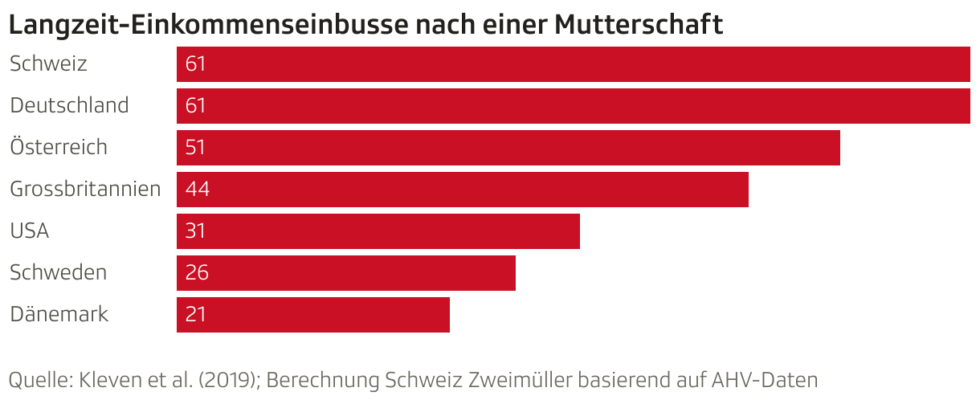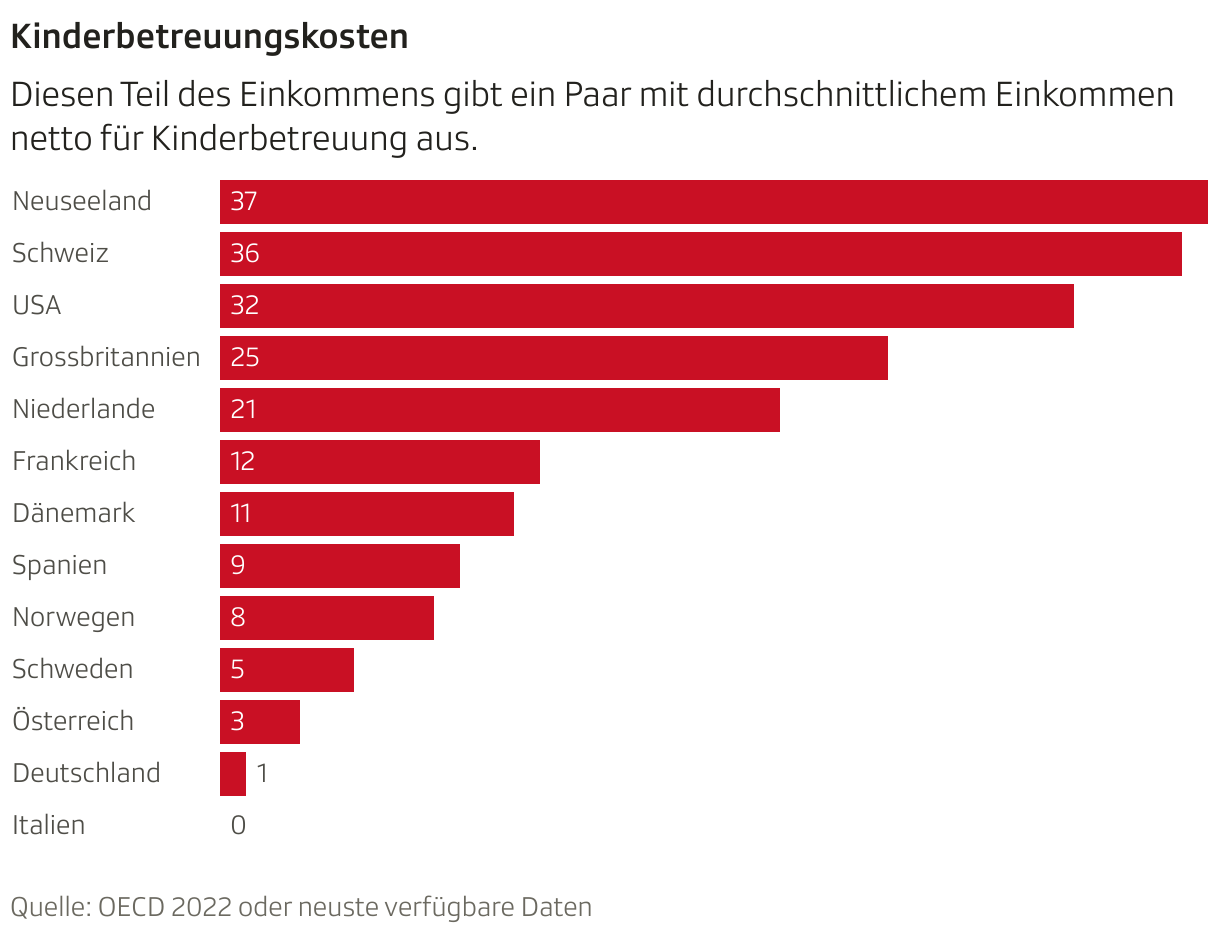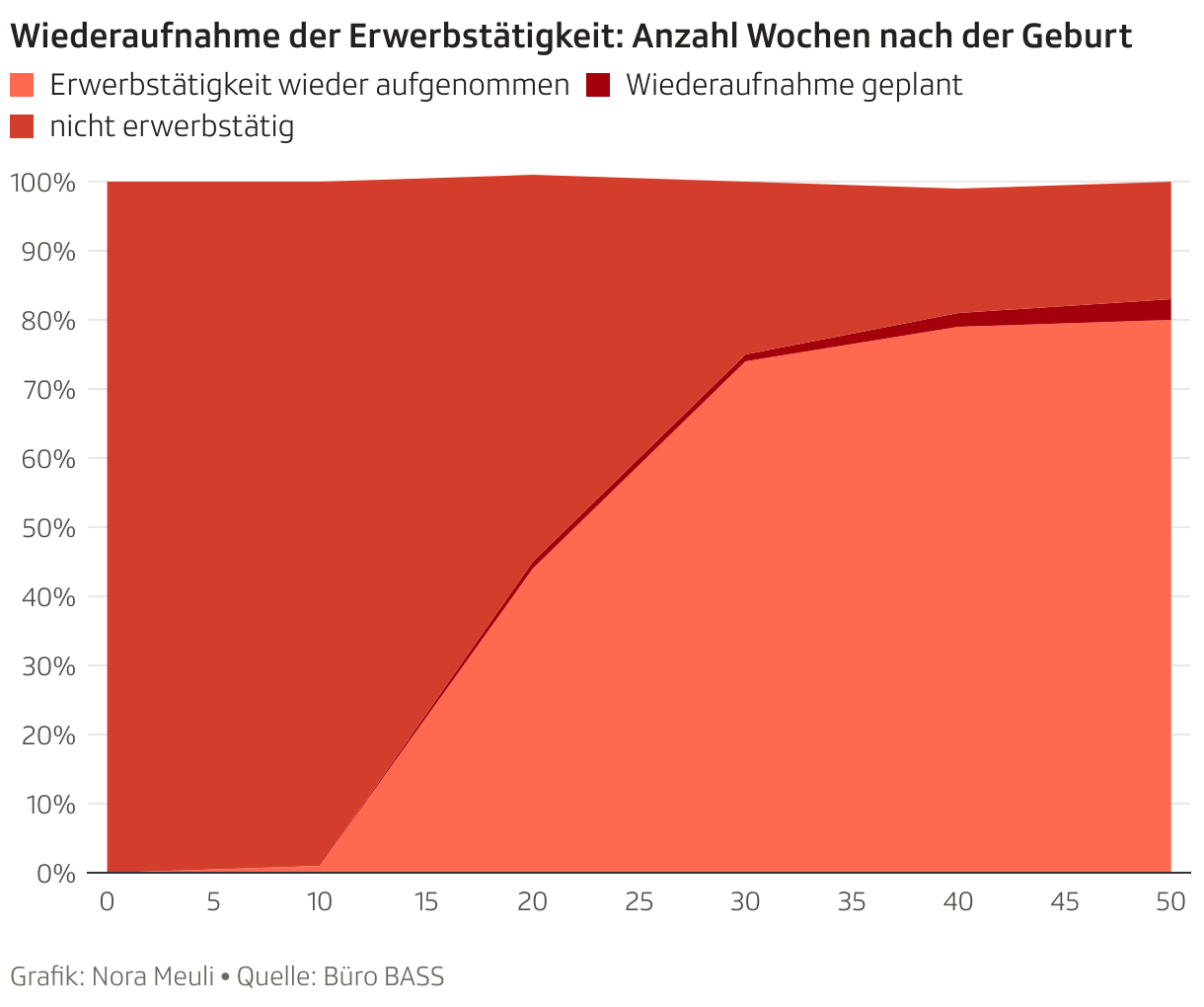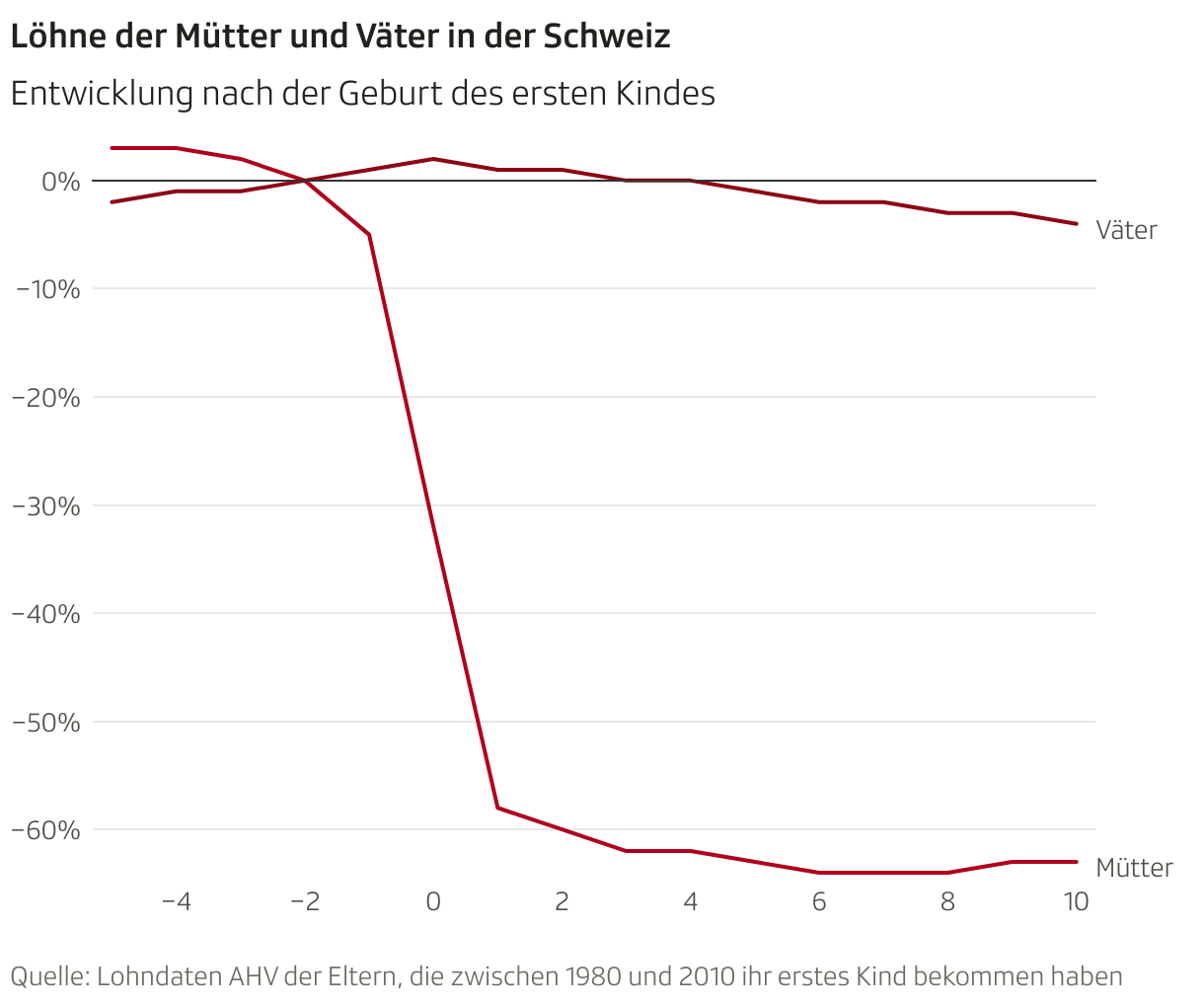Contents
In no other wealthy country are the differences greater: mothers in Switzerland earn around 60 percent less than fathers. A lack of structures, norms and employers contribute to this.
Mothers in Switzerland often work short-term jobs, while fathers usually work full-time. This reduces mothers’ career opportunities. In Scandinavian countries it is much more balanced.
Why do mothers in Switzerland behave so differently than their Nordic counterparts? The answer is complex: because of the lack of structures, norms and opportunities in the workplace. All of this influences the parents’ decision.
Missing structures
Child care in Switzerland is expensive and is still lacking in many regions. All-day schools in particular are still the exception rather than the rule in Switzerland. More than a third of mothers I would actually like to work more if childcare were cheaper and work and care were easier to combine.
Childcare is a necessary prerequisite for both parents to be able to work. But child care alone is not enough: In Austria, for example, daycare centers are much cheaper and the mothers’ workloads are still small. An important explanation is the different standards.
The norms
What is considered “normal” depends on your own social environment, but also on social expectations. It still takes place in the German-speaking world a significant part of the population (30-40 percent)that mothers should devote themselves fully to their young children and not work. In Nordic countries, less than 10 percent agree with this statement.
Most mothers in Switzerland take full care of their children for longer than the law requires: maternity leave in Switzerland ends after 14 weeks. After 16 weeks, however, only 20 percent of mothers are back at work. After 40 weeks 80 percent are back to work.

Legend:
The maternity break: For many women there is a before and after when it comes to wages.
KEYSTONE/Gaetan Bally
There are a lot of them by international comparison, but they often work in small stints.
The employers
Family-friendly working conditions – part-time work, flexible working hours, home office, etc. – are not equally possible in all jobs. But it is also clear that some employers could do more to help mothers and fathers combine their jobs with family work. Many mothers say they would work more at their job if it were easier to combine work with care work.
In certain companies, mothers are simply not welcome: Over 10 percent of mothers reportthat their employer suggested that they terminate their employment contract “amicably” or openly threatened to terminate them after maternity leave. This is illegal. The fact that these employers do not want to employ mothers could be because they have had bad experiences with mothers. For example, because they are absent more often because a child is sick.
The decision
If both parents had similar workloads and split family work 50:50, they would at least earn a similar amount. The joint decision depends on who earns how much before the first child: Since fathers are often older than mothers, they have had longer to develop professionally and often earn more. So it is also a financial decision. With long-term consequences.



